Opinions
#CripTheVote brings disability community to the fore
Presidential candidates take note of long-ignored group
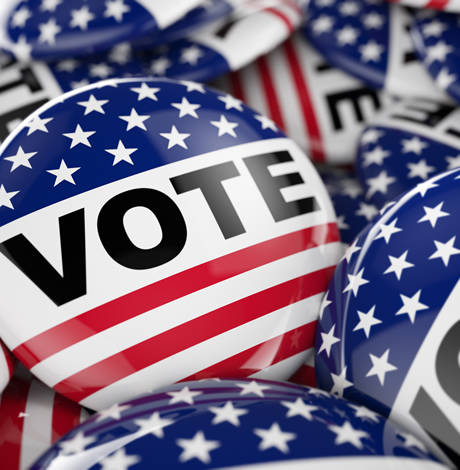
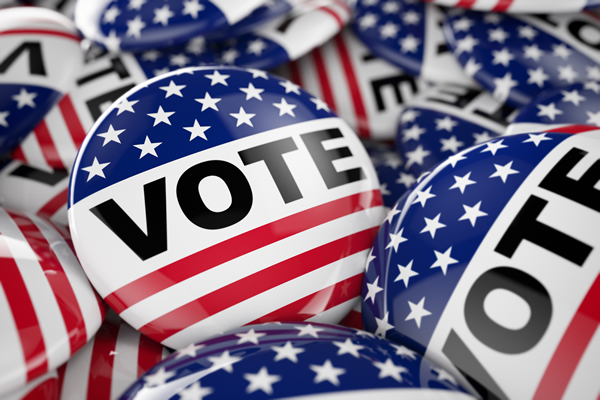
CripTheVote is a nonpartisan campaign to engage voters and politicians in a discussion of disability issues, and to get disabled people out to vote.
This has been a contentious, divisive election season. Yet, being queer and disabled, I’m hopeful despite the muck. Though campaigns (at least in the Democratic Party) have recognized the LGBT community as a political constituency for some time, the disability community has been largely unnoticed. This election cycle, the disability community is finally getting on the radar.
Through the social media campaign #CripTheVote and other get-out-the-vote efforts, the disability community has become a part of the cultural conversation as it hasn’t been before. Recently, on Sept. 21 in Orlando, Fla., Hillary Clinton became the first presidential candidate to deliver a speech pitched to the disability community.
In a tight race, Clinton and Donald Trump are seeking the votes of a community that is increasingly becoming a voting bloc to be reckoned with: the one-in-five Americans who, according to the U.S. Census Bureau, have disabilities, their families, friends and allies. Some three to five million people identify as queer and disabled.
Previously, presidential campaigns have occasionally referenced disability. In 1996, the late actor Christopher Reeve, who had a spinal cord injury, spoke at the Democratic National Convention, and Bob Dole, the Republican presidential candidate and World War II veteran, spoke openly about his war injury.
But this election, it’s different. Crip the Vote has been tweeting questions and responding on Twitter during the presidential debates. Three disability groups, The Association of People with Disabilities, National Council on Independent Living and REV UP campaign, sent the candidates a detailed questionnaire about their policies on disability issues. Clinton and Trump responded to the survey.
Clinton’s speech to the disability community in Orlando wasn’t the usual batch of platitudes. She spoke of the discrimination, inaccessibility and poverty so many people with disabilities live with daily. Disability is an issue that “really gets to the heart of who we are as Americans,” she said.
Not all disabilities are visible, Clinton said. But, “If you don’t know you know someone with a disability, I promise you, you do,” she added, “But their disability is just one part of who they are.”
Clinton’s campaign has plans aimed at making colleges more accessible to disabled students, helping people who have Alzheimer’s disease and autism. The campaign has released an ad for Clinton in American Sign Language and an ad featuring disability rights advocate Anastasia Somoza. People with disabilities were mentioned 35 times in 19 section of the Democratic Party platform, former Congressman Tony Coelho, who has epilepsy, told the Washington Post.
Trump’s disability policy is far less developed than Clinton’s. And his recent comments on people with disabilities are on par with his anti-queer, misogynistic, anti-immigration and sexist views. Behind the scenes, he called Oscar-winning deaf actress Marlee Matlin “retarded” when she was on his reality TV show “The Apprentice,” according to recent news reports. The term “retarded” is a slur against people with intellectual disabilities. Matlin, known for her role on the “The L Word” isn’t intellectually disabled. “It’s not about insults or taking each other down,” Matlin wrote in a statement on Twitter, “As a person who is Deaf, as a woman, as a mom, as a wife, as an actor, I have a voice. And I’m using that voice to make myself heard…and vote.”
Trump’s mockery of a New York Times reporter with a disability is well known. Trump has denied dissing the reporter, and boasted that he spent “millions of dollars” to make his buildings disability accessible. (He’s legally required to ensure that his buildings are accessible to disabled people.)
If you’re able-bodied, accessibility may seem like an abstract concept. If you’re disabled, it’s all too real. In 2012, I went to my polling place to vote. After I said I needed assistance because I’m visually impaired, a man working at the polls said to me, “if you read to me what’s on the ballot, I’ll help you vote.” Eventually, this got ironed out. But, for a moment, I wondered if I’d be able to vote.
CripTheVote is a nonpartisan campaign to engage voters and politicians in a discussion of disability issues, and to get disabled people out to vote.
You might think that there’s little connection between CripTheVote and the queer community, but you’d be wrong. Disabled people in our community have spouses, friends and colleagues. Now that we can legally marry, some of our children will have disabilities.
“The LGBT community has shown what targeted organizing can accomplish,” Alice Wong, a CripTheVote co-founder, e-mailed me. “The LGBT community is a great example of how to build coalitions.”
The disability community has a higher rate of poverty than the queer community, Ted Jackson, a 47-year-old gay man with a neurological disability, told me in a phone interview. “But the LGBT community didn’t start from a place of wealth,” added Jackson, the former community organizing director of the California Foundation for Independent Living Centers.
“Yet, if you get enough $3 donations, they’ll add up to a million dollars,” Jackson, currently, director of disability community engagement with the Democratic National Committee, said.
You don’t have to be disabled to support #CripTheVote. Check it out. Let’s all join the conversation.
Kathi Wolfe, a writer and a poet, is a regular contributor to the Blade.
Opinions
TRAITOR: Treasury Secretary Scott Bessent has blood on his hands
Nation’s highest-ranking gay public official is a MAGA sell out

It’s an odd dichotomy: President Trump appoints the highest-ranking openly gay government official in history in Treasury Secretary Scott Bessent, yet he launches cruel attacks on transgender Americans.
Make no mistake: Those attacks are claiming lives. Trans people are killing themselves. I know of one trans person who died by suicide on Election Night, overwhelmed by fear of the incoming administration. Trump’s attacks have driven trans Americans and their families to flee the country and move to Canada, as the Blade has reported.
None of this is hypothetical or melodramatic. It’s real life and happening everywhere.
And so when Bessent was confirmed as Treasury Secretary, I wrote an op-ed urging him to educate Trump about the plight of trans Americans and the destructiveness of the attacks on the community. I waited 90 days for some sign that Bessent has a heart or at least a modicum of decency but sadly, I must report that he does not.
The attacks on the LGBTQ community under Trump keep coming. Last week’s news that the U.S. Department of Health and Human Services is planning to retire the national 988 crisis lifeline for LGBTQ youth on Oct. 1 is just the latest evidence that this administration doesn’t just dislike us — they want us dead.
“Ending the 988 Suicide and Crisis Lifeline’s LGBTQ+ youth specialized services will not just strip away access from millions of LGBTQ+ kids and teens — it will put their lives at risk,” Trevor Project CEO Jaymes Black said in a statement.
The service for LGBTQ youth has received 1.3 million calls, texts, or chats since its debut, with an average of 2,100 contacts per day in February.
Make no mistake: cutting this service will kill young LGBTQ people.
Just a couple of weeks earlier, Trump’s administration announced the Office of Infectious Disease and HIV/AIDS Policy would be gutted.
“In a matter of just a couple days, we are losing our nation’s ability to prevent HIV,” said HIV+Hepatitis Policy Institute Executive Director Carl Schmid.
And prior to that, Trump issued a series of executive orders targeting the trans community — restricting access to affirming healthcare, banning trans service members from the military, barring trans women and girls from playing sports, eliminating the “X” gender marker on passports, and barring students assigned male at birth from using women’s restrooms.
Let’s be very clear: When you deny someone the ability to use the bathroom, you deny their humanity.
So back to Scott Bessent, the billionaire hedge fund manager now running our economy into the ground. As many Trump protesters have noted: silence is complicity. And Bessent has been silent on all of these horrific attacks on trans Americans and their basic humanity. He is spineless and a traitor to the LGBTQ community.
Bessent runs the U.S. Treasury and reportedly has Trump’s ear on all matters related to the economy. He could easily push Trump in a better, more compassionate direction, yet there is no evidence he has done that.
“The LGBTQ+ community is counting on openly LGBTQ+ nominees like Scott Bessent to step up for the community,” said Human Rights Campaign President Kelley Robinson after the inauguration. Sadly, it’s become clear we cannot count on Bessent. As I wrote in January, Trump likes his queer people gay, white, cis, rich, and obedient.
Bessent has ignored the Blade’s interview requests. (And after this is published, I have no illusions he will change his mind.) The mainstream media, increasingly cowed by Trump, have failed to ask Bessent even the most basic questions about his views on trans equality and Trump’s attacks.
As a member of the LGBTQ community, Bessent has a responsibility to at least speak up on behalf of trans people who are suffering. But Republicans today have lost their spines. They genuflect before their Dear Leader, line their own pockets, and leave the rest of us to deal with the consequences.
The crisis is real. People are dying. Trans people especially are suffering. The rest of us must do what we can to mitigate that suffering and to speak out in defense of our trans friends.
Kevin Naff is editor of the Washington Blade. Reach him at [email protected].
Opinions
Congressional Equality Caucus should participate in WorldPride
Make bold statement about our commitment to LGBTQ rights

The Trump administration, by its actions, has already hurt WorldPride. By attacking trans people, they have gotten many nations to suggest to trans citizens they not come to the United States. Canada’s queer group has said it is advising its people not to come. It is sad in so many ways. But despite what the felon in the White House is doing, WorldPride will be a success. It can be a time to not only have fun, but to make a point to the administration and the world. What was the old saying, “We’re here, we’re queer, and we’re not going anywhere, so get used to it.” The LGBTQ community in the United States has made great strides since Stonewall in 1969, and there is no way we are going back into the closet.
One way we can make a strong statement is if every member of the Congressional Equality Caucus would come out and join hands with constituents from their state, who are coming to D.C. for WorldPride. Together, they can take a stand for equality. Together, they can make a statement about our country to the world; that the United States values and supports its LGBTQ community.
This year from May 17-June, we are anticipating huge crowds in Washington, D.C. for WorldPride. Let us together make sure they are all safe and that they have an exciting and fun time while here. But at the same time we should use this gathering to speak out, for our community here, and the LGBTQ community around the world.
We must show the felon in the White House, and his MAGA acolytes in Congress, and around the nation, all those who would keep us down, we can, and will, stand up for ourselves. We are only willing to move one way, and that is forward toward full equality. Many years ago, during the early fight for recognition of the HIV/AIDS epidemic, there was an event staged by the group ACT UP, called ‘hands around the White House.’ It is time to stage something like that again.
With all the attacks on the trans community, and as threats to the entire LGBTQ community continue, we need to stand together, and stay strong. We need to join with everyone else who is fighting back against the felon, and his Nazi sympathizing co-president, in the White House. To join in the demonstrations, fight back, and not fall for the distractions meant to take us from our goals. Those goals must include defeating every Republican in elections in 2025, and taking back Congress in 2026. I say every Republican, only because today there is no longer a rational Republican Party. That party has become a MAGA Party, or ‘Cult of Trump.’ That is sad, but it’s true. It is not up to Democrats, or independents, to change the Republican Party; it is up to us to ensure their defeat until they change themselves.
Until then we must work hard to elect Democrats across the nation. From school board, to county council, from statehouse to Congress. For the LGBTQ community that is the only way we will move forward on equality. It is the only way we can defeat those who want to ban books about our lives, and try to force us back in the closet. We must say a resounding NO to that.
We must vote for Democrats because history shows us, any other vote, a vote for a third party, helps Republicans win. The reality, like it or not, is today there are only two parties that can win a general election. Yes, in a few rare districts, a third party has won. But this is rare and let’s not take the chance of that happening if there isn’t a history in your state, or district, or community, where it happened in the past. Be smart! While you may not like everything the Democratic Party stands for, it has proven, its members stand for the rights of the LGBTQ community. The incredible progress since Stonewall has been because the Democratic Party has worked with the activists in our midst, to make that progress. Let’s not give up now and move backwards with the MAGA Party. Together, let’s retake our government, and continue to move forward until we have full equality. That must be the goal we join hands for, and pledge to work toward.
Peter Rosenstein is a longtime LGBTQ rights and Democratic Party activist.
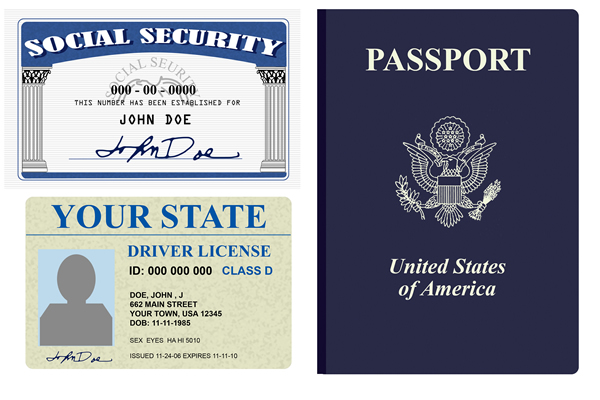
With legislation making it more difficult for transgender and gender non-conforming people to change their passports and other documents, it is now a race against the clock to change as many of them as possible.
Trans Maryland and Advocates for Trans Equality are among the groups that offer workshops and online resources.
Here’s how I did it in Maryland:
A letter from your primary care provider
The first thing you’ll need to get any of this rolling is a document from your primary care provider that shows proof of hormone therapy, gender incongruence, or both. In my experience, this is important to have prior to getting anything started because some states require some sort of proof in order to certify the change.
Some courts may need a therapist’s letter as well, but it depends on what state you live in. With this document, you’ll be able to bring it to the respective offices and it will give a valid reason for you to get your desired gender marker.
A court order
The next thing you will need is a court order that recognizes your gender identity. It is a precaution just to avoid any wasted time or confusion at any offices going forward. You will go to the circuit court website for what state/county you reside in and find a document that is a petition to change your gender. Here is an example from Maryland.
You will print that document and fill out the petition for your respective titles with or without a name change and take it to the Circuit Court. Some courts may require the appointment. There, you will present the petition and letter and pay a fee — Maryland’s fee is $165, however there are fee waivers for those that apply. After, you will wait some weeks for the court order to show up.
Social Security card
Unfortunately, as of January 2025, the Social Security Administration has ceased any gender changes in their system. As with the fight for passports reflecting the holder’s proper gender identity, the Human Rights Campaign and the American Civil Liberties Union may bring a case to regain access in the future.
Identity card/driver’s license
After getting your primary care letter and court order, make a standard appointment for Identification Services at the local DMV and bring the paperwork. Though the Maryland Court’s website says there is no need to get a court order to change any documents, the clerk at the Maryland Motor Vehicle Administration (Maryland’s DMV) stressed that I needed the updated Social Security card changed in order to get an updated ID.
I was able to get it changed prior to the Trump-Vance administration, however given the current circumstances, if there is any pushback from any clerk or official who say they require a Social Security card, very adamantly cite the official gov website if applicable, and use the court order, despite the fact you should not need one to get your ID updated.
Birth certificate
Should all have gone well with the ID, the last document to amend is the birth certificate.
Unfortunately, this may be the most difficult document that you are able to amend because it must be done within your home state and some states, such as Oklahoma, Florida, Tennessee, and Texas, have already banned altering birth certificates.
In D.C., where I changed my own, there have been no known issues or legislation passed for changing the name and gender marker on the document. You will search your state government websites for the vital records department, find a Gender Designation Application and fill out the necessary information. The D.C. application is here:
On D.C.’s application, you must sign the document in front of a notary in order for it to be valid. Several mail offices, such as UPS, offer notary services for relatively cheap. Upon getting the application notarized, you can bring all documents you have already updated along with the court order and primary care letter to an appointment at the vital records office. All the previous work done should make this fairly easy if you are in a state that hasn’t made heavy strides to halt the process.
All in all, with about a month of your time, about $300, and a state that supports your right to self-actualization, you should still be able to change most of your documents.
-
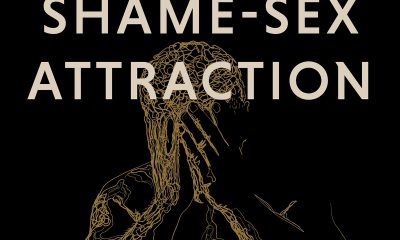
 Books5 days ago
Books5 days agoChronicling disastrous effects of ‘conversion therapy’
-
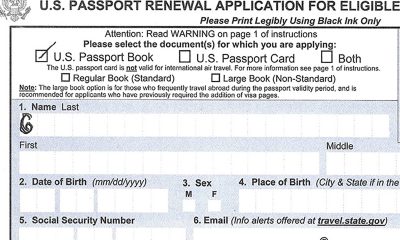
 U.S. Federal Courts4 days ago
U.S. Federal Courts4 days agoSecond federal lawsuit filed against White House passport policy
-

 Opinions5 days ago
Opinions5 days agoWe must show up to WorldPride 2025 in D.C.
-
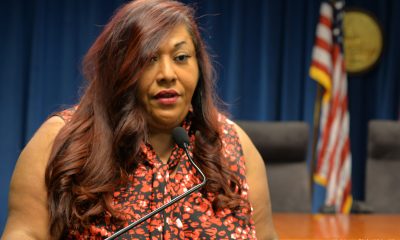
 District of Columbia4 days ago
District of Columbia4 days agoRuby Corado sentencing postponed for third time













